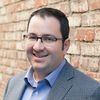More on the Death of Expertise

I've spent a lot of time thinking about the death of expertise. I wrote about it two years on this blog, but it feels like something that comes up frequently. It is once again at the time of my mind during the COVID-19 pandemic we are all experiencing.
To me, medicine seems like an area that has long resisted this trend compared to other fields. While it is easy for someone to share their lawn care tips, car washing, personal finance, or other topics that regular people experience every day, developing cures, vaccines and other medical items has seemed like something that has remained much more firmly in the hands of trained and educated experts.
I'm wrong about this.
We see now that there are actual experts like Dr. Anthony Fauci who have spent their entire lives dedicated to a particular, typically obscure topic, and who can provide in-depth and detailed understandings at a time of need and crisis. However, we all see the many people who are willing to share their opinions, ideas, and thoughts, with little basis as if they are experts.
The more I thought about it, the more I realized that this isn't new; it's just that the crisis is shining a spotlight on it. For years and decades, we have been a nation of unproven supplement takers, trendy diet experimenters, and, worst of all, vaccine deniers. I thought of this is a fringe group, especially with the anti-vaxxers: a small group of people, loud perhaps, but small. I'm wrong on this, too. We are all subject to it. I am a customer of the vitamin-industrial complex. (Don't worry, we're well- and frequently-vaccinated.
In the time of this unprecedented crisis, we see it all come out of the shadows:
- Unproven cures
- People eating chemicals for their fish tanks to help themselves
- Rumors and falsehoods spreading like wildfire
- The fake expert
I suppose none of it should be surprising. In a time of crisis, we want to feel in control and comfort ourselves. "It's OK," we think, "we can solve this." If I take this pill, behave this way, follow the data I believe, it will be OK.
Terrible in this is the fake expert. Even worse is the phony expert with a large platform and reach. In my chosen profession of venture-backed startups, I privileged to work in a field with many intelligent and well-educated people. Unfortunately, that also means many people think they are smarter than everyone else.
There are many age-old adages about success that people will quote and swear by:
- Surround yourself with people smarter than you
- Get counsel from experienced experts
- Think before you speak
and many others
What we see, of course, is the opposite. There are people who, no doubt, understand data, or business, or math. Now, suddenly, they are disease experts. They read a paper. They did some math. They looked into things. It's obvious: THIS IS THE WAY.
These are the folks arguing on Twitter or cable TV about they are right.
Usually, they have no real basis or claim. It's said that it takes 10,000 hours to be an expert. Certainly, the newcomers to this pandemic don't have that. They would have you believe that because they are outsiders, they see something new. I doubt it.
Let's let the experts decide. Let's remember that there is undoubtedly value to new perspectives, but it must also be paired with expertise and knowledge. Silicon Valley has lionized the outsider who builds something new. Many times these outsides break the law, behave terribly, and, in cases like this, can actually kill someone.

